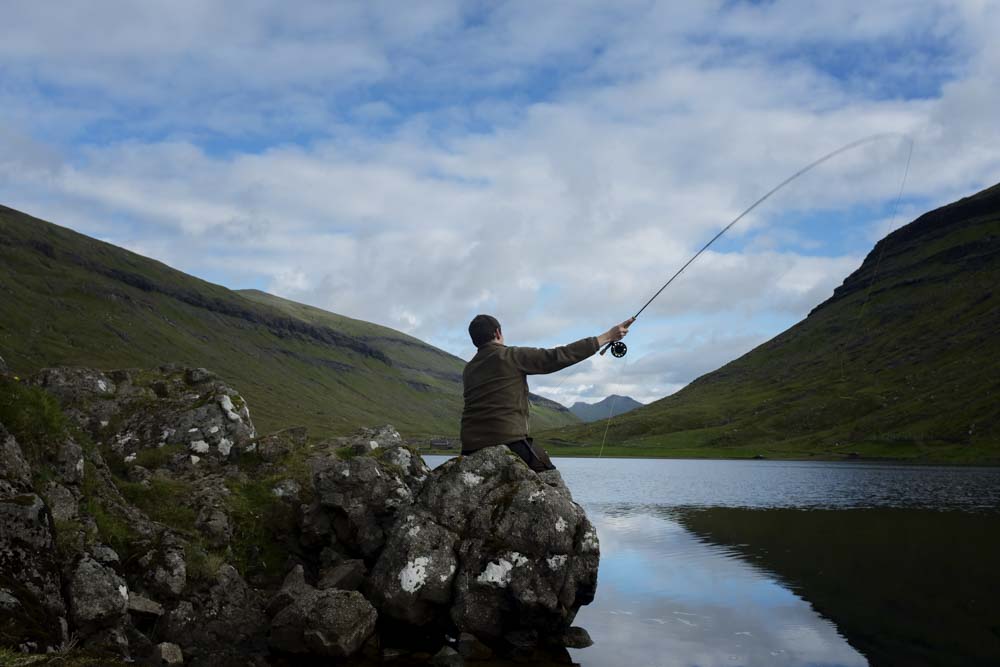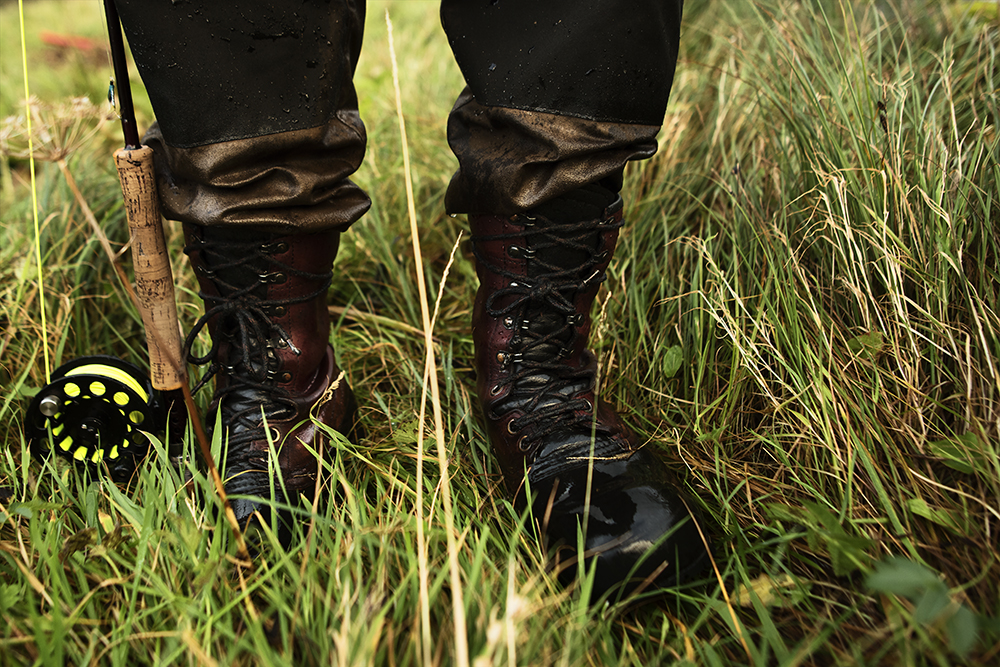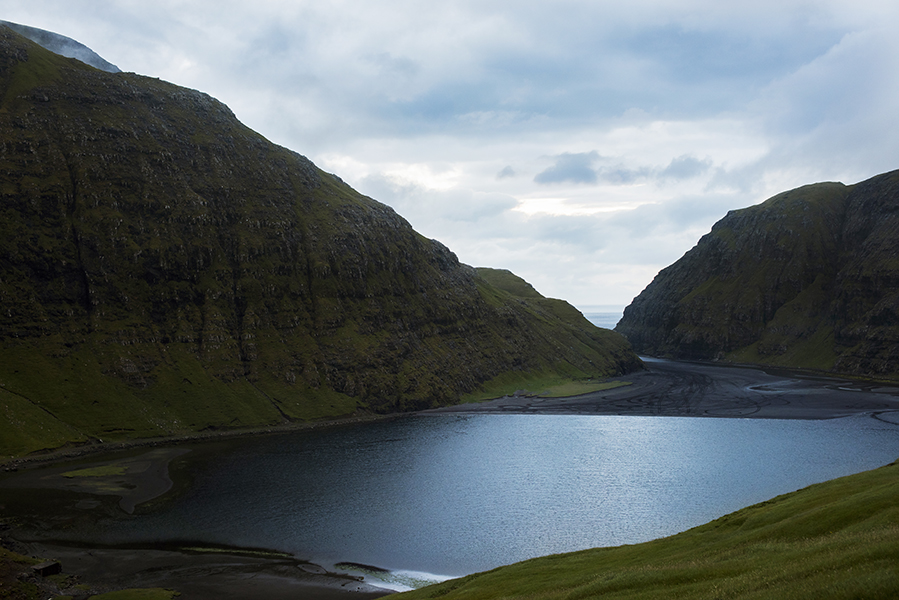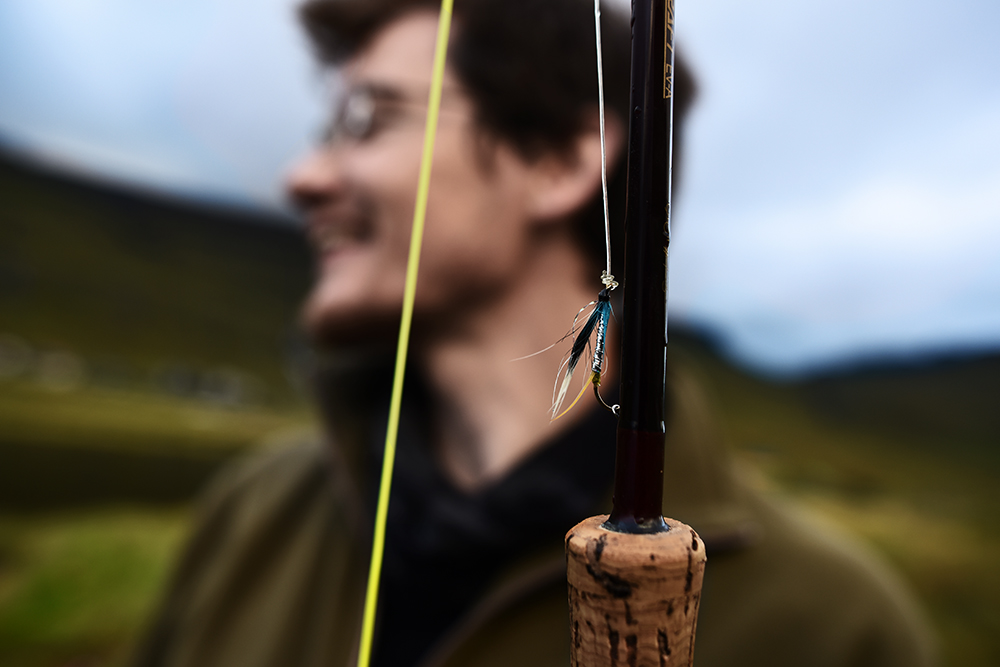Fish to forget

Salmon are the fish I respect the most. Not because I’ve never caught one, or the amount of time and money spent trying, I fish to forget these trivialities.
Salmond fishing in Saksun
Has respect for salmon disappeared?
Indeed, there are perfectly valid reasons for completing a day's fishing, returning without fish, and proudly claiming victory and success.
When living in Norway, I'd take Salmon for granted. Farmed salmon, common for sandwiches, dinners, salads and sushi, is an everyday food - available to all. Skin is usually removed, it's packaged in plastic - ready for sushi or the grill, without sign of the animal to which the meat belonged.
There's not the same respect that I used to have for the Scottish Wild Salmon that would be the highlight of a rare, formal family dinner. How can you respect the animal of the meat you're buying when it's covered in plastic, all sign of it's evolution and struggle lost?
A community sharing knowledge and tales about the king of fish
Then, living in Norway I started fishing at the Gaula river. More salmon are caught on this river by rod than any other river in Europe (although not by my rod, obviously). Hundreds of fishermen-women and children would flock to the Gaula every summer, from Denmark and other countries for weeks, camping and fishing, getting the most from their time at the Gaula's shores. Reading the river daily, adapting their strategies.
Fireworks along the shoreline would start the season on midnight on the 31st of May, and at the same second lines with lure, fly and worm would be cast into the flow, hoping to be seductive enough to catch the attention of one of the river running salmon, fighting the current to reach their spawning grounds.
Talking to the locals, Danish fishermen, and other tourists gave you a rich feeling for what was going on. We would camp at the shore, take a beer, barbecue and just witness what was going on - try to listen to the conditions and mimic what appeared to be the right technique and setup from the more experienced folks.
Everyone was talkative and friendly. If someone had a bite, all rods went up simultaneously to give the best chance of landing that fish. Egos were set aside for supporting the surprisingly long affair of tiring the salmon out enough for it to be landed.
Nothing prepared me for seeing a large wild salmon being caught in it's home river. On the first occasion, a man in his late seventies spent near an hour bringing it in, the salmon running him up and down the beat continually, full of energy. The line taught, stretched like piano wire, the rod at a U-bend and the anxious expression of the fisherman to get the fish in. It's tense, primitive and gives incredible respect for the animal on the end of the line.
Once landed, his friend helped him dispatch it. Then the old man took a thin blue line from his pocket and wrapped it around the tail. He was taller than me, and as he walked up the tractor path with the fish's tail over his shoulder, the fish's head would hit the ground. A near 6 foot long, 17.5kg Atlantic Salmon.
We joined him, as a friend was writing for a local newspaper and wanted an interview. He pointed out the sea tail still on the back of the salmon "it's still on! It releases after 12 hours of being in the fresh water of the river. This salmon has swam 72km in less than 12 hours, fighting the current the whole way".




Salmon fishing on the Faroe Islands
Now on the Faroe Islands, we have the opportunity to fish for wild salmon. On the first day at the beat, a small lake at Saksun, we saw several fish jump - a flood of Gaula memories overwhelmed me as I realised what we're fishing for.
Fishing isn't about the catch, but a connection made with this incredible animal, the finest of all the fish. I lower my expectations to meet the reality: no salmon have been hurt so far, and I never expect to walk away with one. At some point though, with more learning and opportunism I hope that day will come.
“Many men go fishing all of their lives without knowing that it is not fish they are after.”





